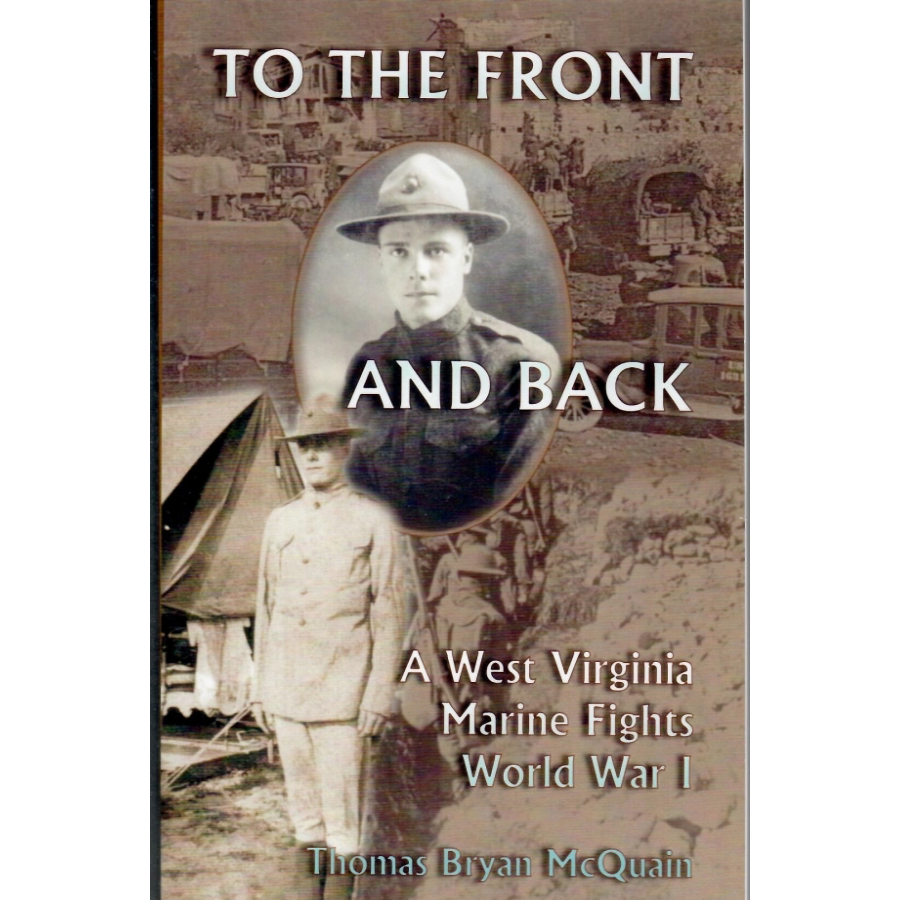To the Front and Back: A West Virginia Marine Fights World War I
Couldn't load pickup availability
On April 6, 1917, the United States declared war on Germany and joined the conflict that had ignited in Europe in 1914. In all the cities and towns across the United States men enlisted for the Army, Navy, or Marine Corps.When Thomas Bryan McQuain volunteered for the Marines in 1918, he had never been more than twenty-five miles from home. He had never seen a big city, or even a train. At twenty-one years of age, he had been helping on the family farm near Troy, West Virginia, and teaching in a one-room school. After enlisting, he traveled to Parris Island, and through major cities in both the United States and Europe. Thomas McQuain survived some of the worst battles of the war before returning to Gilmer County, West Virginia. He was an astute observer of both places and people, and his keen eye is reflected in his narrative. The front lines, the flu of 1918, armistice, Pershing's Honor Guard, the hardships of daily life, and much more come alive on these pages. During the war he carried a two-inch by four-inch notebook in which he jotted down dates and important places. To compensate for the lack of a camera, he recorded notes on picture postcards. In the 1930s, these notes and postcards, in combination with his vivid memory, enabled Thomas McQuain to recount his journey in now-yellowed notebooks. These notebooks were transcribed in the 1960s to preserve this detailed firsthand account of World War I. Facsimile reprints of vintage photographs and picture postcards enhance the text.
Thomas Bryan McQuain
2005, 5.5" x 8.5", paper, 280 pp.
ISBN: 9780788431487
101-M3148
